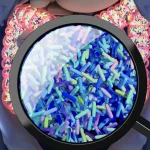Ever had one of those moments where you’re sitting in a doctor’s office, maybe twiddling your thumbs, watching the clock, and deep down, you’re thinking, “Am I missing something here?” Maybe it’s about your child, your sibling, or even yourself. Maybe you’ve noticed little things—quirks, let’s call them—that everyone else seems to brush off. Not talking as much as the other kids, lining up toys in perfectly straight rows, or just… being different, in a way that feels hard to put into words.
I get it. It’s messy, confusing, and sometimes scary. You want answers, not just for your own peace of mind, but because you care. That’s where the topic of genetic screening for autism comes in. It’s a phrase that gets tossed around a lot, but what does it really mean? Is it a magic solution, a Pandora’s box, or something in between?
Let’s dive into this together, like friends over coffee—no lab coats required. We’ll talk about what genetic screening for autism really is, why folks consider it, what it can (and can’t) tell you, and, most importantly, how you can make decisions that feel right for you and the people you love.
So, What Exactly Is Genetic Screening for Autism?
Okay, let’s break it down. Genetic screening for autism is basically a way of looking at your DNA—your body’s instruction manual—to see if there are any changes or patterns linked to autism. Think of it like trying to find a typo in a really, really long book. Sometimes these typos don’t mean much, but sometimes, they can offer clues about why someone sees or interacts with the world the way they do.
Genetic Screening vs. Genetic Testing: What’s the Difference?
You’ll hear both terms thrown around a lot, and honestly, they sound like the same thing, right? But here’s the deal: genetic screening usually means looking for signs of a condition before symptoms show up (kind of like a routine check), while genetic testing is more targeted—like checking for specific genetic changes if there are already symptoms present. Both can be part of the journey if you’re curious or concerned about autism.
How Does It Work? Blood Test for Autism Gene and More
Usually, it’s as simple as a blood test, or sometimes a cheek swab. The sample heads off to a lab where scientists look for specific genes or changes (mutations) linked to autism. There isn’t just one “autism gene”—it’s a patchwork quilt of many genes, and sometimes, the results are more about possibilities than clear-cut answers.
You might see terms like “chromosomal microarray” or “gene panels.” Don’t let the jargon scare you! These are just different ways labs check for genetic variations. The point is, with a quick blood test or swab, you can peek into your genetic blueprint.
Why Do People Consider Genetic Testing for Autism?
Here’s the big question—why even go down this road? For some, it’s about answers. For others, it’s about preparation. And for many, it’s just wanting to know more, to feel less lost.
Early Signs and Symptoms—When Might Testing Be Considered?
Maybe you’ve noticed a little one not hitting the usual milestones—talking late, avoiding eye contact, or just not connecting with others the way you expected. Sometimes a pediatrician or a teacher might bring it up gently. That’s usually when families start thinking about genetic testing for autism. It’s not about labeling anyone—it’s about understanding, and sometimes, about getting support sooner.
Who Might Benefit From Genetic Screening for Autism?
If there’s a family history of autism, or if a child is already showing signs, genetic testing can sometimes help clarify what’s going on. Some people even look into genetic testing for autism before pregnancy—maybe because they want to understand possible risks, or just be as prepared as possible.
I remember talking to a friend—let’s call her Sam—who had two kids on the spectrum. For her, getting genetic testing done wasn’t about finding blame or “fixing” anything. It was about understanding her family’s story a little better, and making sure she had all the tools and support she needed. For Sam, knowledge was power—and a relief.
The Real Benefits (and the Real Limits) of Genetic Screening for Autism
Let’s be real: genetic screening for autism isn’t a crystal ball. But it can be helpful—sometimes in ways you might not expect.
What Are the Potential Benefits?
- Early Intervention: If you have a diagnosis or strong clue early on, you can get support services, therapies, or resources sooner. That can mean a world of difference for a child’s growth and happiness.
- Family Planning: If you’re thinking about having more kids, or if you’re a couple considering genetic testing for autism before pregnancy, it can offer valuable insight—even if it’s not a guarantee either way.
- Community and Resources: Sometimes, just having a piece of paper with “yes, there’s a genetic component” can open doors to services, support groups, or even research studies that could help your family.
What Are the Risks and Limitations?
But, and it’s a big but, genetic testing for autism isn’t perfect. Here’s why:
- No 100% Answers: There’s no single “autism gene.” Sometimes the test finds something interesting, and sometimes it doesn’t. Even if there’s a genetic change, that doesn’t mean someone will have autism, or that autism can be predicted with certainty.
- Emotional Rollercoaster: Let’s not sugarcoat it. Waiting for test results, or trying to make sense of them, can be stressful. It’s okay to feel overwhelmed.
- Privacy and Ethics: Genetic info is super personal. Some families worry about how the information will be used, or who will see it. It’s a valid concern, and it’s worth talking about with your doctor or genetic counselor.
- Misunderstandings: Sometimes, people think genetic testing is about “fixing” autism, or preventing it. That’s not the case—it’s about understanding, not erasing anyone’s identity.
How Much Does Genetic Testing for Autism Cost?
Alright, let’s talk dollars and cents. The genetic testing for autism cost can vary a lot, depending on the type of test, where you live, and your insurance plan. Some basic tests might be a few hundred dollars, while more complex ones could run into the thousands.
| Type of Test | Estimated Cost Range | Notes |
|---|---|---|
| Chromosomal Microarray | $1,000 – $2,500 | Common first test for autism evaluation |
| Whole Exome Sequencing | $2,000 – $5,000+ | Detailed, looks at many genes |
| Targeted Gene Panels | $500 – $2,000 | Focuses on specific genes associated with autism |
Insurance may cover some or all of the costs, especially if recommended by a doctor. It never hurts to call your provider and ask. And if money’s tight, don’t be shy—there are sometimes financial aid programs or hospital payment plans that can help.
Where Can You Get Genetic Testing for Autism?
If you’re wondering where to get genetic testing for autism, you’re not alone. The best starting point is usually your pediatrician or a specialist—like a neurologist or developmental pediatrician. They can refer you to a genetic counselor or a reputable lab.
Be wary of direct-to-consumer DNA kits that promise instant answers. Real, meaningful results (the kind you can actually use) almost always come through a health professional who can help you interpret what the results mean—for your situation, not just in general.
When you meet with a genetic counselor, bring questions. Here are a few to get you started:
- What kind of test is being recommended?
- What are the possible outcomes?
- How will the results affect care or support?
- What happens if the test doesn’t find anything?
- Who will see the results?
What Do Autistic Individuals Think About Genetic Testing?
Here’s something that doesn’t get talked about enough: the voices of autistic people themselves. For a long time, most research focused on what parents, doctors, and scientists thought about genetic testing for autism. But recently, that’s started to change.
According to a study at BC Children’s Hospital Research Institute, autistic individuals have shared that genetic testing can feel like a double-edged sword. Some found it empowering, a way to understand themselves better. Others worried about being labeled or misunderstood.
The takeaway? Listen to autistic people. If you’re considering genetic testing for yourself or your child, seek out first-person stories, join online forums, and ask real people about their experiences. There’s no one-size-fits-all answer, but there’s a lot of wisdom in lived experience.
Making the Decision: What Should You Ask?
Deciding about genetic testing for autism isn’t easy—and it’s not a decision anyone should make alone. Here are some questions to help guide your thinking:
- What am I hoping to learn from this test?
- How will I feel if the results are uncertain?
- Who will support me through this process?
- What resources are available if I need extra help?
Don’t be afraid to take your time. It’s okay to sit with your feelings, to ask for more information, or to talk it through with friends or family. Remember, there’s no “right” answer—just the answer that feels right for you.
Finding Trustworthy Information and Support
Not all information on the internet is created equal (shocker, right?). When you’re researching genetic screening for autism, stick to reputable sources—children’s hospitals, government health sites, autism organizations, and, most importantly, people you trust. If a site makes big promises or seems too good (or scary) to be true, it probably is.
Consider connecting with a local autism advocacy group or a genetic counselor for up-to-date, personalized advice. And always, always trust your gut. If something doesn’t feel right, keep asking questions. You deserve answers that make sense to you.
Wrapping It Up: You’re Not Alone on This Road
Whew—take a breath. We’ve covered a lot, and if your brain feels like a bowl of spaghetti right now, you’re definitely not alone. Genetic screening for autism is a big topic, and it’s okay to feel a little dazed.
Here’s what matters most: You care enough to ask questions. You care enough to want to understand. Whether you’re looking at genetic testing for autism before pregnancy, wondering about the cost, or just trying to figure out where to get genetic testing for autism, remember that you’re not just searching for information—you’re searching for connection, support, and a bit of hope.
So, what do you think? Have you walked this path before? Are you just starting out? I’d love to hear your thoughts, stories, or even your worries—because that’s what makes this journey a little less lonely. And if you have questions, don’t be shy. That’s what friends are for.
You’ve got this. And no matter what the test says, no matter what decisions you make, remember: you (and your loved ones) are more than a string of genes. You’re a story, a family, a life in progress. And that’s something no test can ever define.

























Leave a Reply
You must be logged in to post a comment.